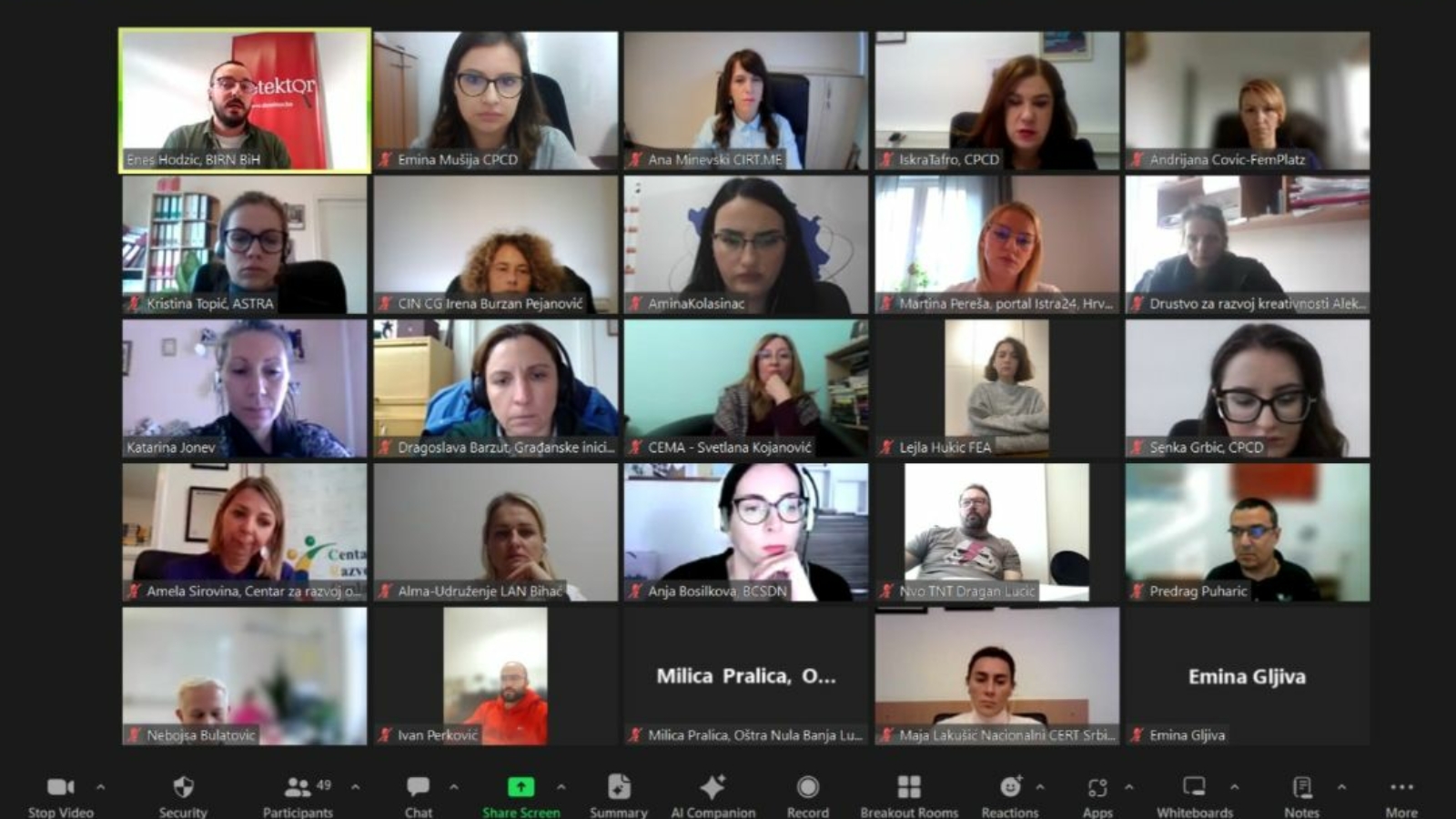More than 50 participants, including leaders from civil society organizations, institutions, media, and citizens, actively participated in the debate “Official mechanisms for regional response to violence and threats in online environment” which took place on Friday, November 17, 2023 via the Zoom platform. The discussion’s goal was exchange of experiences in the field of responding to these regular occurrences in Serbia, Bosnia & Herzegovina, and Montenegro.
Participants discussed reactions in cases of witnessing violence or murder via live streaming, as well as when news spreads rapidly, the media’s responsibilities in reporting on crisis situations, and everything that we can do in these types of situations.
The panelists, who have extensive experience in identifying and resolving issues related to online violence and responding to threats, included Katarina Joneva, a Serbian cyber security expert, Ana Minevski, a cyber security consultant from Montenegro’s Computer Incident Response Team, and Predrag Puharić, the director of Bosnia and Herzegovina’s Cyber Security Excellence Center. Enes Hodžić, a journalist and researcher for BIRN BiH, moderated the discussion.
“There is no single solution that can mitigate risks, but a multifaceted approach should be applied, including the improvement of legislation, policies and regulations, but with the obligatory efforts of civil society, raising the level of education and exchange between organizations. Citizens should become active in the work of civil society and organizations“, pointed out Ana Minevski during the discussion.
Enes Hodžić, a journalist from Detektor.ba, emphasized in his conclusions that a large number of actors from the entire region of the Western Balkans understand the dangers on the Internet and how much a common mechanism for quick reactions is needed: “We have detected a large number of problems, but there should be no lack of optimism because many individuals and organizations are ready to get involved in solving them, that is, in wider social engagement regarding these problems. It is necessary to start from raising the awareness of the entire society through the development of communication mechanisms and the development of educational programs for the media, civil society organizations, state institutions and citizens, all the way to advocating cooperation with large technological companies, putting pressure on the authorities to implement appropriate legal and strategic solutions, and in ultimately regional cooperation with clearly divided roles“.

At this point, partnerships between different regional organizations were initiated and formed in order to work together toward increasing awareness of these crucial issues and offering suitable solutions.
The discussion was held as a part of the SMART Balkans project, which is funded by the Norwegian Ministry of Foreign Affairs and is being carried out in six countires by Centar za promociju civilnog društva (CPCD) in in partnership with the Institute for Democracy and Mediation (IDM) from Albania and the Center for Research and Policy Making (CRPM) from North Macedonia with the goal to strengthen participatory democracy and Euro-Atlantic integration in Albania, Bosnia and Herzegovina, Kosovo, Montenegro, North Macedonia, and Serbia.









